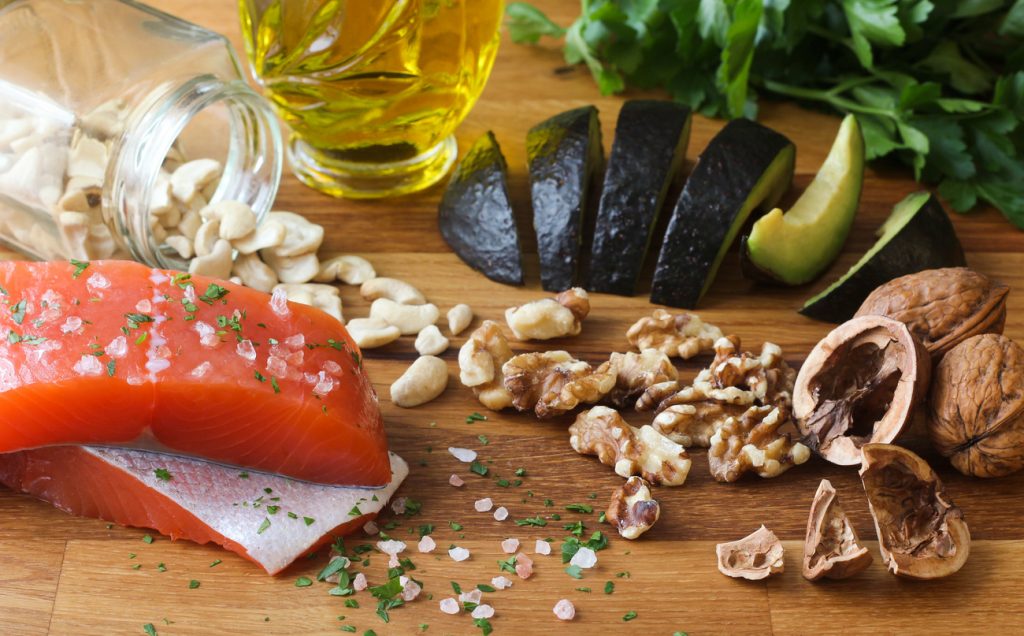…We are just discovering that the gut is playing a critical role in the health and functionality moment to moment of your brain. Dave Perlmutter, MD
A new term on the heels of a recent medical discovery is entering the lexicon: the gut-brain connection. Research confirms a direct connection between the health of our colon, or gut, and the state of health of our entire body, with a particularly strong connection to the health of our brain. Dave Perlmutter MD, one of the leaders in this emerging field, calls our gut our “second brain.” Justin Sonnenburg and Erica Sonnenburg, PhDs. write in their book, The Good Gut: Taking Control of Your Weight, Your Mood and Your Long-Term Health
Recent evidence indicates that not only is our brain “aware” of our gut microbes, but these bacteria can influence our perception of the world and alter our behavior. It is becoming clear that the influence of our microbiota reaches far beyond the gut to affect an aspect of our biology few would have predicted—our mind.
Gut Brain Connection
Microbes in our gut control our moods, our food cravings, and a bushel basket of other mental and physical health aspects from depression and anxiety, to weight gain and organ issues. Here is a great example: if an overabundance of microbes that live on simple carbohydrates — sugar and sugary foods, white flour processed food products (crackers and bagels) –are happily thriving in your gut, they send S-O-S signals to your brain. The messages come via your vagus nerve (the supersonic information highway between your brain and gut) and produce an intense craving for sweets to feed those microbes. The good news here? Once we stop eating these simple carbohydrates, in just a few weeks, those microbes quiet down, and the cravings will cease. Then, we are no longer in an endless, sugar-craving nightmare.
Inflammation: The Driver of All Diseases
More great news! By eliminating highly processed foods from our diet, we lower the levels of inflammation in our body and in our brain. Inflammation is the driver of all diseases. It does double damage to our brain, which lacks the capacity to deal with inflammation without suffering consequences that show up first as memory blips, foggy thinking, and data loss before sliding into more serious problems like dementia and Alzheimer’s. When we add stress to inflammation we have a potentially lethal cocktail, which accelerates our aging and super-charges the deterioration of our cognitive function. This breakdown hastens the development of “tau and tangles,” the telltale elements present in the brains of Alzheimer’s patients.
Antibiotics and Medications Add to the Problem
Antibiotics, like penicillin and medications for Clostridium difficile, or C.diff., as it is commonly known, wreak havoc on the delicate balance in our colon and allow the unhealthy microbes or “bad bacteria,” to flourish. This causes inflammation to soar. Dr. Perlmutter thinks acid-blocking drugs called proton pump inhibitors— Prilosec®, Prevacid®, Dexilent®, Aciphex Sprinkle®, or their generic brands, might be the biggest threat to gut health. Research shows a 40% increased risk of dementia from chronic users of these acid-blocking drugs.
The happy ending to this cautionary tale? We can reverse colon damage, improve our overall health, up to our brain function, and slow down our aging by changing our eating habits and lifestyle. Here is what the experts recommend.
The Cure: Diet
Adopt the Mediterranean diet as your preferred way of eating. In a nutshell here is your eating plan:

- Eat primarily plant-based foods– fruits and vegetables, whole grains, legumes, and nuts
- Replace butter with healthy fats — olive oil and avocado oil
- Use herbs and spices instead of salt to flavor food
- Limit red meat to no more than a few times a month
- Eat fish and poultry at least twice a week
- Limit sweets to special occasions, and counter those times with a healthy meal before and after to keep your gut microbes in balance.
- Drink 8-10 8 oz. glasses of good quality filtered water every day
At every meal fill two-thirds of your plate with veggies—focusing on veggies found below a score of 50 on The Glycemic Index. Look online for this life-saving chart. (Yes, I have a copy of this on my cabinet and in my wallet, as well.) Eating what Mark Hyman, MD and others call “smart carbs,” low glycemic carbs, won’t cause inflammation. Another note from the experts: eat as many organic fruits and vegetables as possible. Conventional produce is highly sprayed with pesticides, especially Glyphosate (Round-up®), which is proven to disrupt the gut flora and cause cognitive issues.
Lifestyle Changes Make a Difference
Lifestyle changes also include exercising aerobically for one hour 5-6 days each week; getting quality sleep, turn off the TV, phone, and lights and strive for 7-8 hours. Add in some “me” time every day, and find ways to bring more joy into your life. Making these life adjustments will recalibrate your health, up-tick your energy level, and help your brain fire on all cylinders. Now that’s a great prescription for staying young.
Change takes time and gets harder as you age, but your body, that miraculous healing machine, always moves toward better health. It all begins with exercising your power to re-choose how you want to live your life. Using this information on your gut and brain connection is up to you. Go for it!







